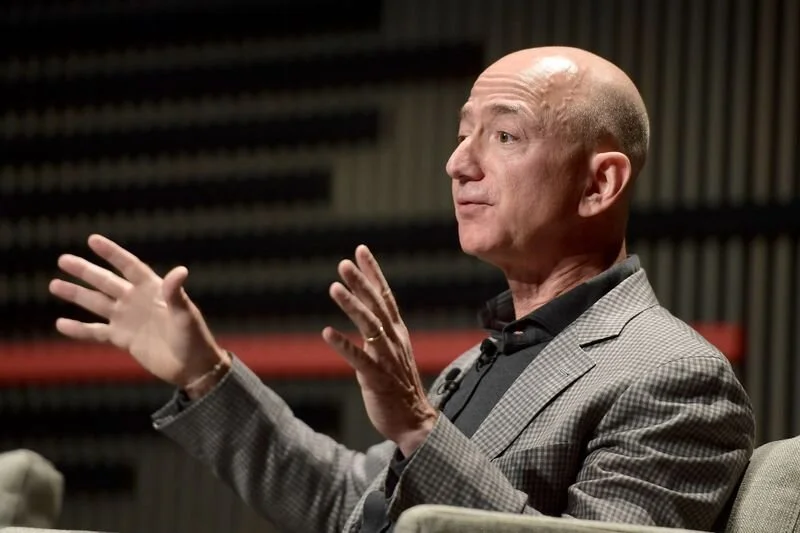This time, Amazon has gone too far: Jeff Bezos's company is profiting and taxpayers are paying the price
For the last year, public officials across America and Canada have held an embarrassing beauty contest to entice Amazon to place its so-called “second headquarters” in their region. They have done this through subsidies and benefits, and the occasional public begging spectacle, like New York Governor Andrew Cuomo musing on changing his name to Amazon Cuomo.
Tuesday, the company essentially announced that the entire contest was premised on a lie. In return for subsidies, the company is opening large satellite offices in three different regions: New York City, the Washington, D.C. Metro area, and Nashville. Such bad faith by Amazon is, as scholar Lina Khan notes, familiar to merchants who must operate on Amazon’s infrastructure. Amazon routinely offers a deal to partners, and then when it gains sufficient power, reneges on those terms.
The benefits offered to Bezos are so egregious as to be comical. In terms of cash, New York State will give Amazon $48,000 per job, plus a $505 million cash grant, as well as other concessions. In Northern Virginia, the state actually created an entirely new neighborhood for Amazon and rebranded it with new name, the generic-sounding “National Landing.” Bezos already invented a holiday, Prime day, now he invented a neighborhood to go with it.
Some of the concessions are small, but humiliating. For instance, Bezos will get a state-subsidized helipad, and Amazon will receive a cash grant of all increased money generated by Arlington’s hotel tax. It’s not called the Amazon tax, but it might as well be.
These levels of subsidies are harmful not just to taxpayers, but to commerce in general. When Amazon gets free money, it uses this money to underprice its competitors and drive them out of business.
These investments will also be bad for the two main regions that received them. The New York City and Washington, D.C., metro areas are already among the most expensive places to live. A massive influx of employment will put pressure on the infrastructure of the areas, and drive up rents and housing costs. It may be good for the regional GDP, but it will be bad for the actual communities themselves.
Moreover, neither had to offer any subsidies at all to be attractive to Amazon. New York City is New York City, with unique infrastructure. It is the media and financial capital of the country. D.C. too is full of businesses because it is America's political capital, and has such useful drivers of commercial activity as, say, the Pentagon. And let's be clear. Bezos isn’t placing Amazon assets next to the Pentagon because of tax breaks, but in all likelihood because he wants those Pentagon contracts.
But the subsidies are only part of the picture. Amazon extracted much more than money from these communities. The company extracted raw political power. In Virginia, Governor Ralph Northram committed the state to actually engage in a statewide deregulation campaign, or, as it’s put in the contract, to “reassess existing laws and regulations to assure they are not unduly harming innovation.” And Virginia will notify Amazon of any Freedom of Information Act requests by the public so the company can “seek a protective order or other appropriate remedy” to quash it.
Amazon’s attempt to control our politics is what should truly frighten us. Amazon’s placement of its new offices is strategic. One analyst studied the whole HQ2 selection process and found “that shortlisted cities had more U.S. senators with considerable seniority.” New York has two important senators, potential 2020 candidate Kirsten Gillibrand and Democratic minority leader Chuck Schumer. They are now likely to look unfavorably on attempts to substantially rein in the company’s power. Owning the Washington Post, and placing a massive commercial center of activity next to the Pentagon, is a mechanism for controlling the national political debate.
Beyond that, one of Amazon’s key corporate opponents, FedEx, is headquartered in Tennessee. Putting 5,000 jobs in that state is a small price to pay to ward off attacks by those two Republican senators defending a hometown company.
There is reason for hope. Amazon is an enormously popular company. Democrats have more faith in Amazon than they do in Congress or the free press. Politicians are loath to cross it. But this time, Bezos went too far. Local officials in New York like Queens representative Ron Kim and Congresswoman-elect Alexandra Ocasio-Cortez , as well as City Council members like Corey Johnson, are angry at the announcement of the deal. There’s a protest Wednesday at the proposed site, potentially the start of a popular anti-Amazon movement. In Virginia, state delegate Lee Carter has pledged resistance to Amazon’s new investment.
With the right policies, perhaps a federal tax of local and state subsidies at 100% for large corporate welfare packages or other mechanisms to block a race to the bottom, we can take back our sovereignty. It’s possible this giveaway will prompt a discussion on whether we as a society are willing to let Bezos pit us against each other so he can extract more power and profit.
Fundamentally, Amazon is simply too powerful. It isn't just about subsidies. It isn't that merchants, or local businesses, or warehouse workers, or communities are being mistreated or misled. It's that Amazon has so much power over our political economy that it can acquire government-like functions itself. It controls elected officials, acquired the power to tax, and works with government to avoid sunshine laws. It’s time to recognize the truth about this company. Two-day shipping might be really convenient, but at least in its current form, Amazon and democracy are incompatible.


